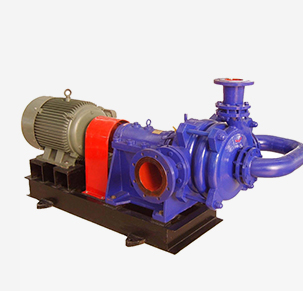Hungarian
- Afrikaans
- Albanian
- Amharic
- Arabic
- Armenian
- Azerbaijani
- Basque
- Belarusian
- Bengali
- Bosnian
- Bulgarian
- Catalan
- Cebuano
- Corsican
- Croatian
- Czech
- Danish
- Dutch
- English
- Esperanto
- Estonian
- Finnish
- French
- Frisian
- Galician
- Georgian
- German
- Greek
- Gujarati
- Haitian Creole
- hausa
- hawaiian
- Hebrew
- Hindi
- Miao
- Hungarian
- Icelandic
- igbo
- Indonesian
- irish
- Italian
- Japanese
- Javanese
- Kannada
- kazakh
- Khmer
- Rwandese
- Korean
- Kurdish
- Kyrgyz
- Lao
- Latin
- Latvian
- Lithuanian
- Luxembourgish
- Macedonian
- Malgashi
- Malay
- Malayalam
- Maltese
- Maori
- Marathi
- Mongolian
- Myanmar
- Nepali
- Norwegian
- Norwegian
- Occitan
- Pashto
- Persian
- Polish
- Portuguese
- Punjabi
- Romanian
- Russian
- Samoan
- Scottish Gaelic
- Serbian
- Sesotho
- Shona
- Sindhi
- Sinhala
- Slovak
- Slovenian
- Somali
- Spanish
- Sundanese
- Swahili
- Swedish
- Tagalog
- Tajik
- Tamil
- Tatar
- Telugu
- Thai
- Turkish
- Turkmen
- Ukrainian
- Urdu
- Uighur
- Uzbek
- Vietnamese
- Welsh
- Bantu
- Yiddish
- Yoruba
- Zulu
Telephone: +86 13120555503
Email: frank@cypump.com
dec . 05, 2024 02:18 Back to list
Mag Drive Pumps for Handling Acids and Corrosive Chemicals Efficiently and Safely
Understanding Magnetic Drive Pumps for Acids and Corrosive Chemicals
In the world of fluid handling, especially when dealing with acids and corrosive chemicals, the importance of selecting the right pump cannot be overstated. Among the various types of pumps available, magnetic drive pumps (mag drive pumps) have gained popularity due to their unique design and operational advantages. This article explores the fundamental aspects, benefits, and applications of magnetic drive pumps in transferring acids and corrosive chemicals.
What are Magnetic Drive Pumps?
Magnetic drive pumps are designed to transfer liquids without the use of traditional mechanical seals. Instead of a conventional shaft seal, these pumps employ a magnetic coupling system. The drive magnet, located on the motor side, turns a driven magnet connected to the impeller. This design significantly reduces the risk of leakage, making magnetic drive pumps ideal for handling hazardous and corrosive materials.
Key Benefits of Magnetic Drive Pumps
1. Leak-Free Operation One of the standout features of mag drive pumps is their ability to operate without leaks. The absence of a mechanical seal means there is minimal risk of chemical spills, which is critical when working with potentially dangerous acids and corrosive substances.
2. Reduced Maintenance The lack of seals or packing leads to lower maintenance requirements. There is less wear and tear, ultimately enhancing the pump's lifespan and reducing the costs associated with repairs or replacements.
3. Versatility Magnetic drive pumps are available in various materials, including polypropylene, PVDF, and stainless steel, allowing them to handle a wide range of acids and corrosive chemicals. This versatility makes them suitable for numerous industries, from chemical manufacturing to pharmaceuticals.
4. Efficiency These pumps are often more energy-efficient due to the absence of a seal, which can slow down the pump's operation. The direct transfer of power from the motor to the impeller allows for better flow rates and energy conservation.
acids and corrosive chemicals mag drive pump

5. Safety The design of mag drive pumps enhances safety in the workplace. By preventing leaks and isolating the pump's drive components from the fluid being pumped, employees are less exposed to harmful chemicals, reducing the risk of accidents.
Applications in Industry
Magnetic drive pumps are utilized in a variety of industrial applications where acids and corrosive chemicals are involved
- Chemical Processing They are frequently used in the chemical industry to transport aggressive fluids, including sulfuric acid, hydrochloric acid, and various solvents.
- Wastewater Treatment These pumps efficiently handle corrosive waste streams, ensuring safe transfer without the worry of leaks that could contaminate treatment facilities.
- Pharmaceutical Production In pharmaceutical manufacturing, where precision and safety are paramount, mag drive pumps play a vital role in the transfer of active ingredients and cleaning solutions.
- Food and Beverage Industry Certain food processing applications require the transfer of cleaning agents and other corrosive substances. Magnetic drive pumps provide a reliable solution that maintains product integrity while ensuring safety.
Conclusion
Magnetic drive pumps represent a reliable and safe option for transporting acids and corrosive chemicals in various industrial applications. Their leak-free operation, reduced maintenance, and versatility make them an ideal choice for facilities that prioritize safety and efficiency. As industries continue to evolve and the demand for safe handling of hazardous substances grows, magnetic drive pumps will undoubtedly play a pivotal role in ensuring effective and secure fluid transfer solutions. Investing in quality magnetic drive pumps can lead to significant benefits for operations dealing with these challenging materials.
-
High-Performance Air Pumps for Sand & Gravel | Efficient Transport
NewsAug.03,2025
-
ISG Series Vertical Pipeline Pump - Chi Yuan Pumps Co., LTD.|Energy Efficiency, Corrosion Resistance
NewsAug.03,2025
-
ISG Series Pipeline Pump - Chi Yuan Pumps | Energy Efficiency&Compact Design
NewsAug.03,2025
-
ISG Series Vertical Pipeline Pump - Chi Yuan Pumps Co., LTD.|High Efficiency, Low Noise, Durable
NewsAug.02,2025
-
ISG Series Vertical Pipeline Pump - Chi Yuan Pumps | High Efficiency, Low Noise
NewsAug.02,2025
-
ISG Series Vertical Pipeline Pump- Chi Yuan Pumps Co., LTD.|High Efficiency&Compact Design
NewsAug.02,2025










